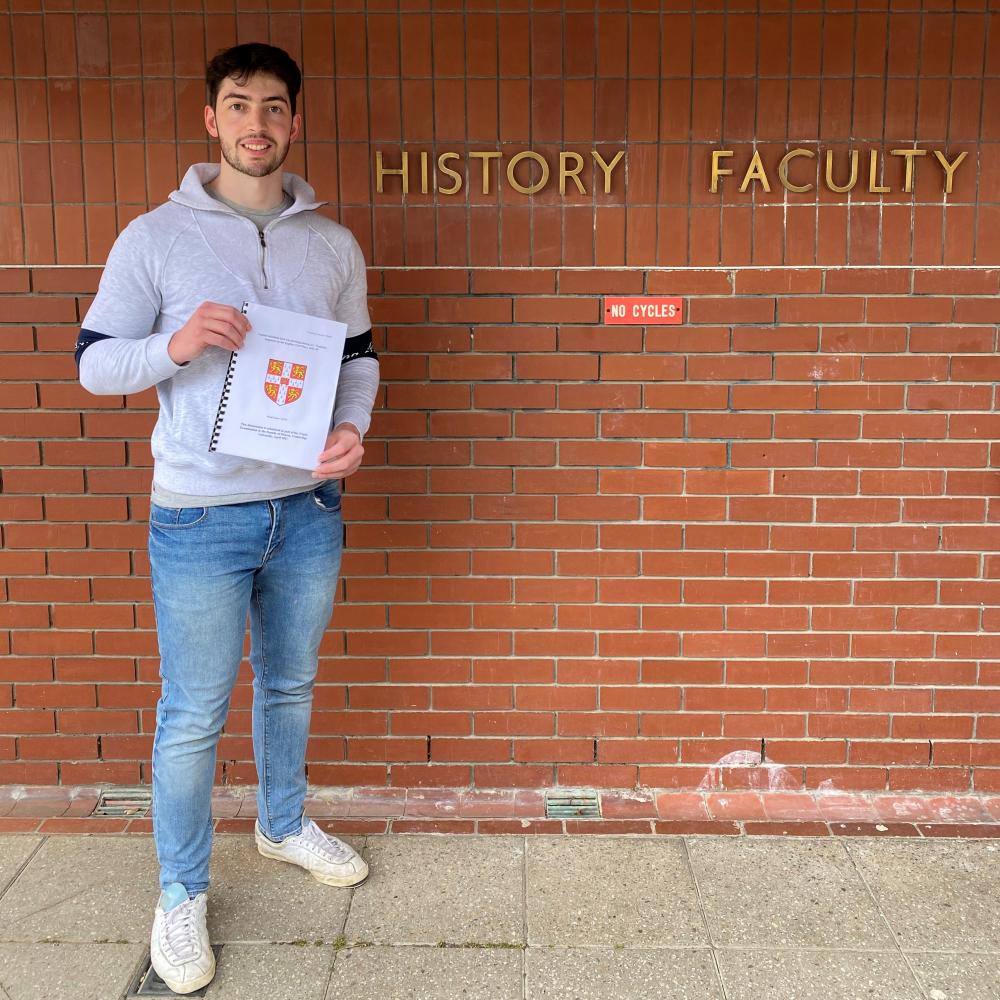Researching a Dissertation from Home

Thomas Osborn
My experience writing a dissertation in American History was, unsurprisingly given the last eighteen months, very different from what I’d envisioned when I handed in my proposal in early 2020. I planned to research how seventeenth-century colonists in Virginia experienced the British Civil Wars, but instead of jetting across the Atlantic to Washington DC and exploring rarely viewed documents in archives across Virginia, I spent my summer at a desk in my front room.
Blocked from travel, I desperately tried to find materials published online, scanned through lists of documents in the hope that some titles might stand out, and browsed Google Maps to look at locations I’d wished to go to in the hopes of gaining some understanding of the local geography. It certainly didn’t match up to what I’d expected dissertation research would look like when I began my degree, but in a sense it was all the more rewarding because of that.
I’d had a fairly strong idea of what I wanted to research before joining Cambridge. My sixth form history course inspired a passion for the Stuart period and discussions with my teacher about just how connected the early American colonies were to the British Isles made me question why they were generally excluded from narratives of the British Civil Wars. Was it because these wars were generally seen as the English or British Civil Wars, confined to the coastlines of the British Isles? Or simply that colonists over 3,500 miles away were too distant to be interested? Much of the secondary literature suggested the latter, that colonists had self-interested mindsets that favoured their personal economic advancement over loyalties to other causes.
One of my central ambitions was to expand the focus of previous accounts beyond certain wealthy planters in order to include the experiences of lower status Virginians. Without being able to visit archives this was difficult. Early Virginians produced few records of their experiences (there were no prolific journal writers like John Winthrop of Massachusetts) and even fewer have survived given Virginia’s place at the centre of a number of wars, rebellions, and natural disasters. Of particular use were county court records and proceedings of the colony’s legislature, so I scoured volumes of cases and laws looking for the telltale signs of neighbourly tensions and conflicts.
What I found presented a very different picture of the British Civil Wars in Virginia than much of the secondary literature had suggested. Many Virginians were keen to hear about affairs in England and they were divided politically. They passionately supported either the Parliamentarians or Royalists, slandered their opponents, disobeyed the royal governor’s orders, and engaged in physical violence. Tensions were particularly high in the merchant community, which linked Virginia to the British Isles. Alongside critical goods, merchants brought news and views from England, sparking arguments and violent confrontations between themselves and the colonists as they disagreed over the authority of the King. Some colonists even refused to trade with merchants from ports held by the opposing side.
Contrary, then, to the view of the colonists as disinterested in the Civil Wars, my research found large numbers of individuals actively supporting both Crown and Parliament. Indeed, the tensions from these partisan alignments became so severe that contemporaries feared civil war would break out in Virginia as well. That it did not was largely due to the Powhatans, a confederacy of Native American nations, who took advantage of English divisions to launch an attack on the colonists in 1644, attempting to destroy the colony and reclaim their lands. The attack temporarily reunited the infighting colonists against a common enemy, averting an internecine conflict that would have certainly drawn more historians to take a closer look at the underlying tensions.
Working through the pandemic certainly forced me to change my plan for how to do my research and what to focus on significantly. I wasn’t able to explore the experiences of ordinary Virginians as deeply as I had originally planned. I also had to focus on closely reading widely cited documents available online for evidence that had been overlooked. But as much as I might have complained to anyone who’d listen at the time, these difficulties made the process more rewarding. I’m proud that I was resilient enough to push on when I feared I’d never find enough materials to support my ideas, and hopefully the online research skills I was forced to learn will serve me well in a world where travel is still restricted and the digital space grows daily.
